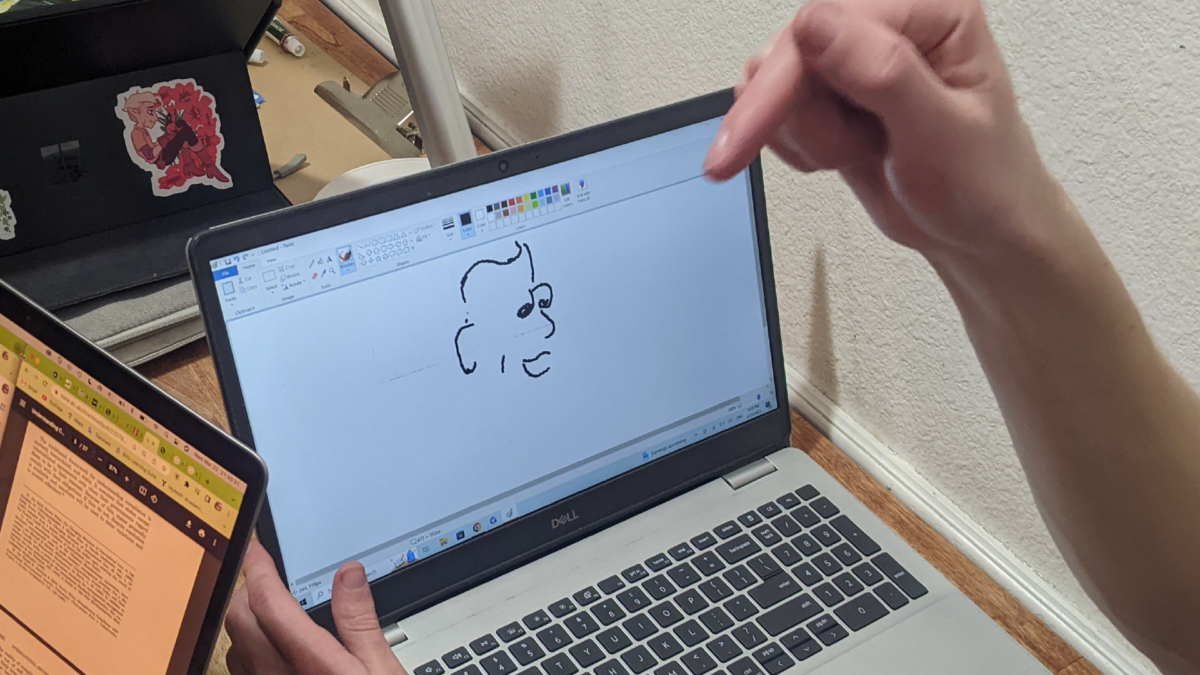It’s that time of the semester again: all the weirdest, wisest, and most unhinged quotes I’ve heard during the last four months of school, all in one place. We’ve got a liberal—nay, promiscuous—helping this time. So buckle your seat belts and remember, in the words of a random stranger I overheard: “Love is stronger than communicable disease. Trust me on this.”
The Band
The closest you get to a one night stand at BYU is ‘hey do you want to do the bowling deal with me?’ —Brandon
Emily (about Portal): I really love the little turrets. They’re so cute.
Brandon: Probably 70% of my social skills come from those turrets. Conservative.
I have as much reading comprehension as a poodle right now. Possibly less. —Emily
That’s actually a swear word in my conlang. —Em
My conlang is exclusively swear words. —Em, upon having this quote reread to her
I have a devil on both shoulders. —Em
As I read that sentence, my eyes narrowed promiscuously. —Camryn
People think it’s weird when I give them earlobe massages. —Michael
Every time I go to Tucano’s I feel so sick afterwards and it takes me like two business days to recover —Em
Actually they were infertile because they were vaporized. —Brandon, on the dinosaurs
Michael: Captain Crunch is like eating tacks.
Camryn: Tacks that love you.
Brandon: I wonder if there’s a place for LDS midwest emo.
Em: In French?
Brandon: It’s very niche.
That’s not a hearse, that’s Kate! —Michael
Who wants to bet that I’ll eat a screw by the end of the night? —Michael
Hot cameraman: lost to time —Camryn, watching The Ring
They’re already having a funeral, so it seems rather economical to have him die at the funeral. —Camryn
They really could have used more oboe when someone died. —Michael
You have free will. You can do whatever you want. You are like a sovereign state on the international stage. Laws are enforced, but not really. —Em, taking polysci
Okay when I say emo I just mean interesting. —Brandon
Camryn: Don’t die, Eric.
Me: Why would I do that?
Camryn: I can think of many reasons.
You should play hard to get with Colonel Sanders Eric, I think you’re worth it. —Camryn
NCMO skills, guys. I can play the mandolin with my tongue. —Brandon
I’d love to have that experience, but I would love to have someone else have that experience and transfer all the skills to me. In summary, I would not like to have that experience. —Em
BYU Faculty
There’s a line from the Bible about final exams: ‘Tis better to give than to receive.’ —Dr. Harper
This is almost as important as ‘don’t put the entire folder in the trash.’ —Dr. Eckstein
[…if I’m just standing here in the classroom], and I see Pope John Paul II. Wouldn’t that be surprising, especially because he’s dead. —Dr. Green
It’s okay to feel let down by the theory. —Dr. Green
People do say crap when they’re looking at this, but it’s an acronym. It means Commonly Recorded Artefactual Potentials. —Dr. Green
Your textbook talks about ‘Government.’ We’re going to ignore it. —Dr. Green
Anyone can kick the bucket. And most people do at some point. —Dr. Green
If you’re interested I can send you my friggin’ long dissertation. —Anonymous
Composition is the humanities equivalent of football. —Dr. Eckstein
That’s the reason I went into the humanities. I topped out at trigonometry. But it turns out that numbers are letters that are shaped differently. —Dr. Eckstein
So I get to be the first pancake?! —Dr. Johnson’s research assistant
We’re geeking out about vowels here, and you’re like, hey look, look at her consonants! —Dr. Stanley
There are people who are raised speaking Esperanto as an L1–their parents meet at Esperanto conventions, and they speak Esperanto at home. This happens with Klingon as well from time to time, but… —Dr. Whiting
People I Don’t Know
I saw a hot girl in my class, so I kinda went and sat down next to her. And I was like, ‘Your outfit makes you look like a Pokemon trainer.’ And she [thought for a second, and she] was like, ‘Do you have a type?’ And I was like, ‘Grass.’ She wasn’t talking about Pokemon. —Speaker in church
It was funny, I didn’t realize it was a date until like days afterwards. —Overheard
It’s very different when you see them in a casket and they have all their skin on. —Overheard, about anatomy class ∎



